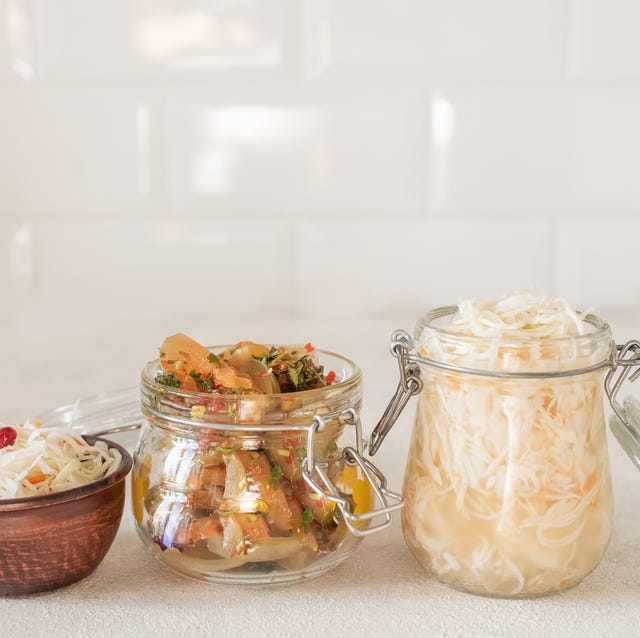Getty Images
Gut-friendly probiotics are having a moment. Gut health has been a priority for many people over the past few years as researchers have become more aware of the vital role the gut microbiome has in helping to maintain overall health. From keeping harmful bacteria in check to supporting immune function and aiding in nutrient absorption, probiotics do a lot of work to keep your body functioning at its very best.
What are probiotics?
The word “probiotic” is a Greek-derived word that means “for life.” According to the International Scientific Association for Probiotics and Prebiotics, probiotics are live microorganisms that, when administered in adequate amounts, provide a health benefit to the host. Probiotics can be consumed in a supplement form or from some foods.
To break it down further, probiotic foods should contain specific strains shown in the research setting to offer health benefits. “Just because a food has live microbes, such as most fermented foods, it does not mean the microbes in the product are probiotics,” says Kate Scarlata MPH, RD, GI dietitian and New York Times best-selling author. The health effects are dependent on the genus, species and strain of the microbe. In other words, the different strains of a probiotic may provide different health effects. For example, if you are struggling with constipation, certain strains of probiotics like Bifidobacterium lactis or Lactobacillus plantarum may be more effective at treating constipation compared to other probiotic strains. Kumkum Patel M.D, adds, “Probiotics are important because they are often responsible for making neurotransmitters such as GABA, serotonin, dopamine and norepinephrine which are responsible for influencing mood and pain perception.”
One of the many ways you can support the health of your gut is by adding gut-healthy foods and probiotic sources to your diet. Here’s where it gets a bit complex: “Many fermented food products in the market contain microbes, but this does not mean that they contain probiotics,” says Scarlata — specifically, foods like sauerkraut, kimchi and some yogurts. She adds, “If the microbes in a fermented food are uncharacterized, which is the vast majority, then these foods do not meet the definition of probiotics.” With that being said, one small study suggests that adding six servings of foods with live and active cultures per day can be very beneficial for your gut microbiome. So if you are looking to diversify the good “bugs” in your gut and possibly reap its health benefits then add these 10 foods to your eating routine.
Advertisement – Continue Reading Below
Advertisement – Continue Reading Below

